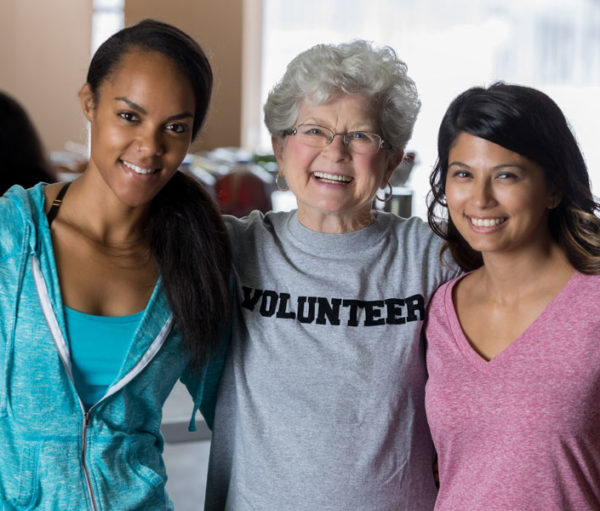Volunteer to Give Your Brain a Boost

April 15–21, 2018 Is National Volunteer Week
We honor our volunteers in April and all year long. Older adults in particular are stepping up to help out where they’re needed—in schools, museums, social services agencies, in scouting, in hospitals, for cultural organizations and faith communities.
At The Alden Network, we value our volunteers and appreciate all they do in our short-term rehabilitation facilities and assisted living communities. Our volunteers share their talents and interests in various ways and are an integral part of Alden.
Almost every volunteer will tell you that they get more than they give from their experience! Volunteering provides a big mood boost and a sense of accomplishment and purpose—so important as we grow older. It gets us off the couch and out of the house. And it just might be that when we raise our hand, we also raise our brain power! Researchers from Johns Hopkins Bloomberg School of Public Health have shown that helping others can actually slow the shrinking of the brain that happens as we grow older.
Over the course of two years, Professor Michelle Carlson, Ph.D., and her team studied a group of seniors. At the beginning of the study, the team took MRI scans of the brains of the participants, who were an average of 67.2 years old.
Then, half of the study subjects began participating in the Baltimore Experience Corps, a program that brings retired people into public schools to serve as mentors for young children and to help them learn to read.
Two years later, brain scans showed that the seniors who had taken part in the volunteer program had maintained their brain size. Some participants even showed a modest growth in the memory center of the brain. The volunteer group also performed better on memory tests. By contrast, the seniors who did not volunteer exhibited more typical age-related brain shrinkage.
“Someone once said to me that being in this program removed the cobwebs from her brain, and this study shows that is exactly what is happening,” said Carlson. “By helping others, participants are helping themselves in ways beyond just feeding their souls. They are helping their brains. The brain shrinks as part of aging, but with this program we appear to have stopped that shrinkage and are reversing part of the aging process.”
Source: IlluminAge, reporting on a study from Johns Hopkins Bloomberg School of Public Health.
The information in this article is not intended to replace the advice of your health care provider. If you have concerns about your memory and activities that would be beneficial for your brain health, talk to your doctor.


